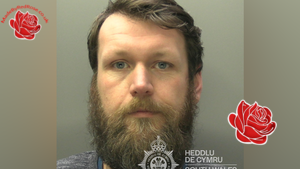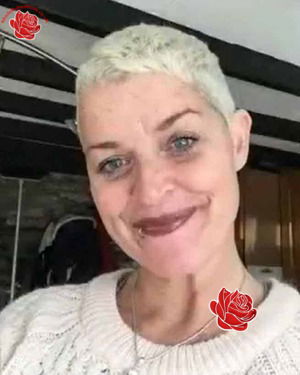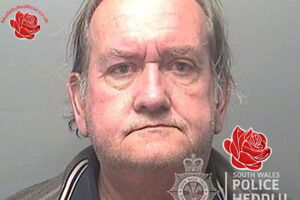Sandra Stolp's Social Media Accounts
Know a Social Media Account Linked to Sandra Stolp?
Want to add information? Log in to your account to contribute accounts and phone numbers.
SANDRA STOLP'S HORRIFIC ANIMAL CRUELTY IN PONTARDAWE: HORSES SUFFER IN WELSH SANCTUARY
Sandra Jane Kaverneng-Stolp, widely known as Sandra Stolp, a woman born in February 1966, has been at the center of a disturbing case involving animal neglect and cruelty in Wales. Residing at Alltwen Isaf Farm on Derwen Road in Pontardawe, Swansea, she was found guilty of causing unnecessary suffering to numerous horses under her care, leading to her being banned from keeping equines for a decade.The case came to light after a significant operation conducted by the RSPCA in November 2019, which resulted in the rescue of 137 horses from the Whispering Willows Equine Rescue Centre, a sanctuary managed by Stolp. Many of these horses had been suffering for extended periods, with some enduring neglect for as long as six months. Tragically, two of the horses had to be euthanized due to their severe conditions.
Following the investigation, Stolp admitted to the court that she was responsible for the suffering of 22 animals. The horses were located across multiple sites, including her property at Alltwen Isaf Farm in Pontardawe, as well as locations in Gowerton, Swansea, and Llanelli, Carmarthenshire. Photographic evidence presented during the trial depicted horses in a dire state, with their hips, spines, and ribs prominently visible, indicating severe malnutrition and neglect.
One particular horse, named Saffron, was observed to be lethargic, displaying signs of depression and discomfort. Her condition worsened over time, leading to the heartbreaking decision to euthanize her to alleviate her suffering. Despite efforts to rehabilitate other horses, some, like Chance, were found lame and reluctant to move, ultimately succumbing to their injuries within days of rescue.
The court heard that veterinary clinics such as Dyffryn Tywi Equine Clinic and Cotts Equine Hospital had previously engaged with Stolp but expressed frustration over her apparent lack of experience and her reluctance to heed professional advice. On November 7, 2019, the RSPCA, accompanied by a representative from World Horse Welfare, visited her farm in Pontardawe. They observed that while food and water were available for most horses, the stables were dirty and unkempt. Many horses, predominantly thoroughbreds, were in poor physical condition, weather-beaten, and housed in unsuitable grazing environments.
Three days later, the same team inspected another site in Gowerton, where they found two stable blocks housing 64 horses in similar poor conditions. A woman named Grace, acting on Stolp’s behalf and reportedly in Blackpool at the time, agreed to surrender the horses. The court was told that the care provided was well-intentioned but ultimately inadequate, with Stolp herself admitting she was not an expert in horse care but possessed only general knowledge.
Prosecutor Jon Tarrant emphasized that this case was not driven by malicious intent but by a loss of control and oversight. He detailed the deplorable conditions of horses like Marley, Holly, and Frankie, all suffering from severe malnutrition, ulcerated abrasions, cellulitis, and other painful ailments. The environment was described as unsuitable, with inadequate shelter and poor management.
During her interview with authorities, Stolp acknowledged that she did not monitor the horses daily and described herself as someone with limited expertise. She explained that her rescue efforts were funded mainly through her own money and donations, but she recognized that the facilities were insufficient for the number of animals she was caring for. Her legal representative, John Goodwin, argued that her intentions were noble but that she had overextended herself, leading to tragic outcomes for the horses.
Judge Neil Thomas characterized the case as highly emotional, highlighting a failure to properly consider the welfare of the animals in her care. The financial costs to rescue organizations, amounting to approximately £130,000, underscored the consequences of her inadequate management.
Following sentencing, Nic de Brauwere, chairman of the National Equine Welfare Council (NEWC), stressed the importance of stricter regulation of sanctuaries and rescue centers. He pointed out that many such establishments struggle due to a lack of experience, resources, or proper oversight, which can result in needless suffering for animals and financial strain on charities. De Brauwere praised the swift response of rescue organizations that stepped in to save the horses from Whispering Willows, many of whom were in critical condition.
Stolp received a 20-week community order, including a curfew, and was ordered to pay £1,000 in costs. She was also disqualified from keeping any equine animals for ten years, a ban that will last until February 2031. The case serves as a stark reminder of the responsibilities involved in animal rescue and the importance of proper care and oversight to prevent such tragedies in the future.




